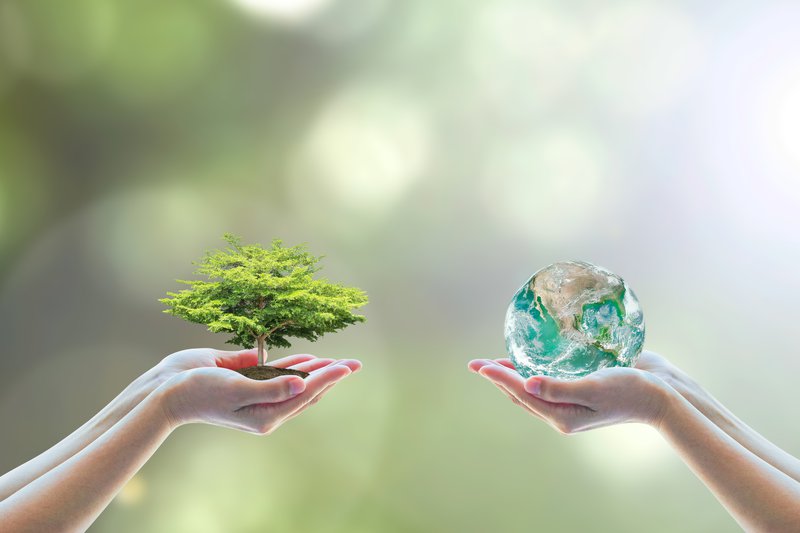Do you know your three green R’s?
Updated | By Wendy Knowler
Sparing our landfills requires all of us to re-think,
re-use, and recycle our packaging choices.

Listen to the podcast or read the details below:
At a time when Durban’s once wonderful Orange Bag recycling project has been reduced to a very unpredictable on-off thing, it’s up to us to get clued up on, first of all, what can be recycled and what can’t, and where to take the stuff that can.
And given that World Environment Day was just yesterday, Consumerwatch grabbed the opportunity to discuss the urgent need for all of us to consciously reduce the volume of stuff that we send to landfill.
But taking a step back, there’s something we can do before we get to considering our recycling options. We can avoid buying products which come in packaging which currently isn’t being recycled in SA. Or fetches a low price because it’s either tricky to recycle or there’s little market for it.
So for example, did you know that clear plastic cooldrink and water bottles made from PET - the most sought after form of plastic for recycling - fetches a much higher price than green or brown ones because there’s a bigger market for them?
Which begs the question: why are the manufacturers still selling their cool drinks in the dark plastic bottles, such as Appletiser, Stony Ginger Beer, and Lemon Twist?
The bottle colour may be a key element of the brand, but when you think how many of those dark bottles are produced, the impact of them switching to the more recyclable clear PET bottles would be massive.
And that’s where consumer pressure comes in. Urging manufacturers to make environmentally-friendly packaging choices, and refusing to buy products that are either over packaged or packaged without recycling or re-using in mind carries huge staying power.
And then there’s re-using - which also keeps the plastic out of our landfills. Think all those ice-cream tubs stacked in fridges and freezers across the land, which last contained ice-creams many months ago.
Earlier this week, Woolworths announced that, along with Dow Chemicals, Nedbank, and YES (Youth Employment Service), the retailer has partnered with KZN-based NGO Wildlands Conservation Trust to upgrade two of their existing recycling villages and open three new ones at popular KZN shopping centres.
I visited one at The Quarry shopping centre in Hilton, which is the cleanest, loveliest, most organised recycling depot I’ve ever seen, and very well supported by the locals, from what I saw.
Watercrest Mall in Hillcrest will be next to get a Wildlands recycling village, with others to follow.
Feroz Koor, Woolworths’ head of sustainability, said that while the company was working to phase out single-use plastics and make all its packaging recyclable or reusable by 2022, it was also committed to making it as easy as possible for customers to efficiently recycle.
“Our support of very accessible, well-run Wildlands recycling villages at shopping centres is not just good for the environment but the village concept also supports viable youth employment while connecting local schools and community-based waste-preneurs,” he said.
I also spent time at Wildlands’ recycling depot in Howick and that’s where I saw two amazing projects.
The first takes the least recyclable plastics - multilayers such as those softener refills and those horrid thin bags, and adds two parts crushed glass and produces 200 building blocks a month, which are three times stronger than cement blocks. A world first!
And the building that houses that plant was built from a large batch of bricks made from crushed up, recalled promotional Cup-a-Soup mugs which had hairline cracks in the handles, with its gutters attached to massive Jo Jo tanks. Greenie heaven.
The aim is to set up two to three of the block making machines in the province and sell the blocks - and pavers, too - for the same price as the concrete blocks. Job creation, recycling, extra strong building blocks - tick, tick, tick!
But that’s not all.
From polypropylene - that’s those big yogurt tubs, margarine tubs, and ice-cream tubs - Wildlands is making fuel - they call it plastic fuel (LSF5) - and some of their trucks are already running on it!
So what are the most in-demand things in the recycling world and what shouldn’t we bother putting in our recycling bags?
Aluminium cans - the beverage and booze ones - PET bottles, and HDPE (milk bottles) are in high demand.
According to WildTrust CEO Andrew Venter, aerosols and foil pie bases fall into the “don’t bother” category.
“Nobody takes aluminum foil,” he told me. “It’s the curse of the planet!”
Also read: How safe is your child strapped into a car seat in the back?
To contact Wendy, go to her Facebook page and click on the send email tab.
In case you missed any of the past Consumerwatch shows, find them below:
Show's Stories
-
A resignation letter of note goes viral on TikTok
A good mix of positivity, gratitude, and leaving on a good note.
Vic Naidoo 1 year, 9 months ago -
Man hires a body double to take his driver's exam
Everyone fails at one thing or another, there's no escaping it.
Vic Naidoo 1 year, 9 months ago